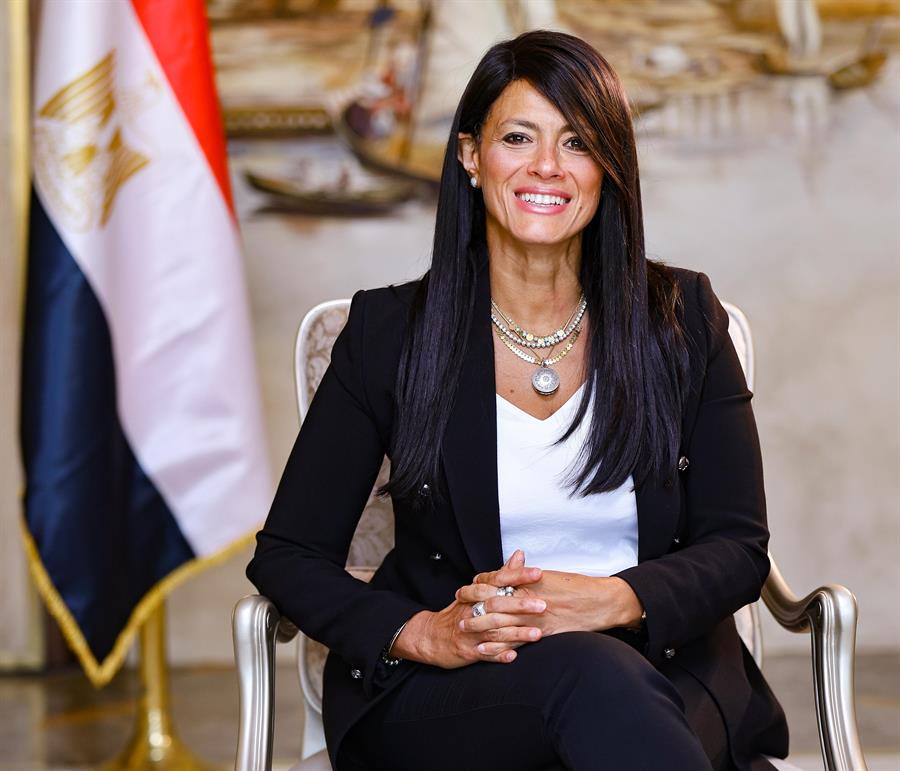Egypt’s Planning Minister discusses the report of the financial & economic affairs committee before the plenary session in the Senate

05 June 2023
The Senate approves the draft plan for the new fiscal year
Cairo on June 5, 2023
H.E. Dr. Hala El-Said, Minister of Planning and Economic Development discussed - for the second day in a row - the report of the Financial, Economic and Investment Affairs Committee regarding a draft law approving the economic and social development plan for the fiscal year 2024/23 before the plenary session in the Senate, chaired by Counselor Abdel Wahhab Abdel Razek.
El-Said explained that Egypt is not isolated from world changes, as uncertainty affects all countries. She also noted that the annual economic and social development plan emanates from the medium-term plan, which is part of Egypt's 2030 plan and vision.
She explained that this plan is carried out in accordance with the general planning law and has legal determinants and scientific methods through which it is carried out, stressing that there are also quick and flexible plans to confront crises, referring to the structural reform plan, which is the second phase of the economic and social reform program that the state launched in 2016.
She pointed out that the structural reform plan is based on It is based on 5 main pillars. The first is focusing on the real economy by focusing on the industrial, agricultural, and communications sectors by increasing the relative weight of these sectors. This makes the Egyptian economy more capable of facing crises.
El-Said said that the second pillar is more private sector participation, referring to the state's efforts to create infrastructure to improve quality of life and attract investors. She also referred to a state ownership policy document that guarantees competitive neutrality and identifies the sectors from which the state exits. She pointed to projects that the private sector has begun to undertake, such as water desalination and wind energy projects.
She explained that The Sovereign Fund of Egypt enters into such projects with a minority package to reassure the private sector.
Dr. Hala El-Said referred to the third pillar, which is the labor market.
She explained that 60% of the population is young, which is a demographic opportunity that must be invested in, pointing to the labor market system, which identifies the skills needed by the labor market, as cooperation began with the Ministries of Education and Higher Education, to develop a set of interdisciplinary specializations needed by the labor market with setting targets to increase technical education and accreditation of technical and technological schools.
She explained that the fourth pillar is social protection, referring to the decent life initiative, and the national project for the development of the Egyptian family. This focuses on controlling population growth rates and improving population characteristics, referring to the fifth pillar, institutional reform.
She emphasized the importance of follow-up reports, referring to the follow-up system and field visits that the ministry carries out in partnership with the Investment Bank to follow up on the investment plan projects in the governorates.
In response to the questions of the deputies regarding the fulfillment of the constitutional entitlement to spend on education and scientific research, El-Said said that scientific research activity is not limited to investments directed to the Ministry of Higher Education and Scientific Research, as we have many research centers spread across many ministries and agencies that carry out research activity.
El-Said also answered a question about population increase, referring to the family development plan, doctors' incentives, and family incentives. She stressed that these positive incentives contribute to investing more in population characteristics.
Moreover, El-Said also said, in her response to one of the questions, that the plan relied on projects whose implementation rates reached 70% so that the citizens would feel the value of those investments.
For transportation and monorail projects, it is important to have adequate infrastructure and decent public transportation for citizens.
She explained that a large part of the transport projects are offered for investment by the private sector.
In her response to a question about unemployment rates, El-Said explained that the state is working to limit unemployment rates and mitigate inflation by slowing down some infrastructure projects during this challenging period.
El-Said answered a question about self-sufficiency rates and supply chains. As part of the horizontal and vertical expansion plan for agricultural development, she stated that many investments were made in self-sufficiency and reached 50% of wheat and corn.
On the Small and Medium Enterprises Law, El-Said said that the law aims to integrate the informal sector into the formal sector, to support the informal sector and its contribution to increasing output value.
Concerning the green economy, El-Said indicated that the state aims to increase green investments in the plan to 50% in 2025/24 and that for the first-time standards for environmental sustainability have been set in coordination with the Ministry of Environment, noting that The Sovereign Fund of Egypt (TSFE) is currently present in some green projects.
El-Said referred to the report on the localization of sustainable development goals at the governorate level. This contributed to a degree of interaction at the local level and raised awareness of sustainable development goals at the local level.









